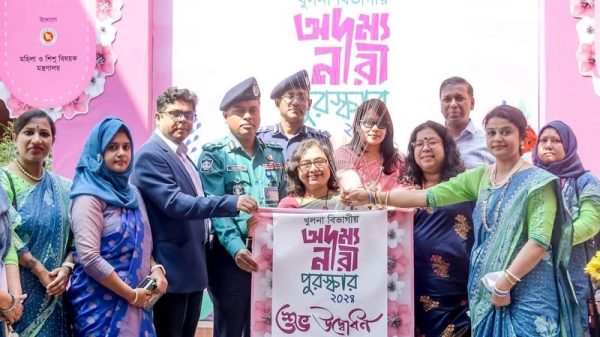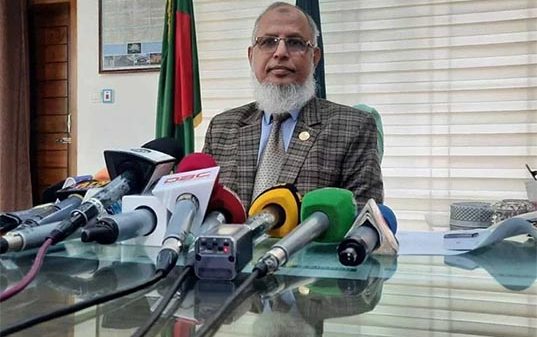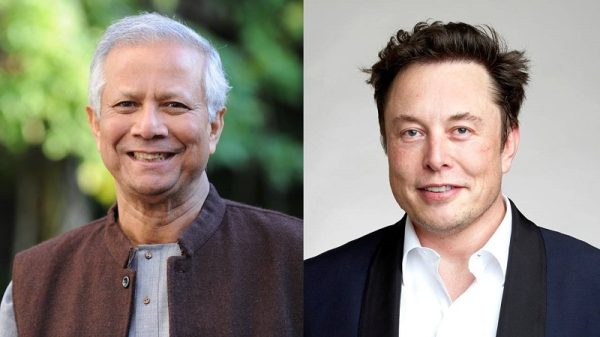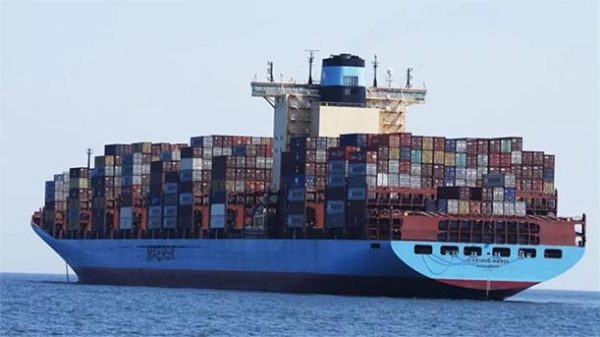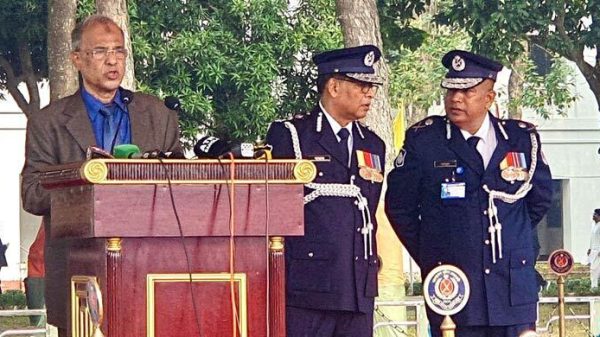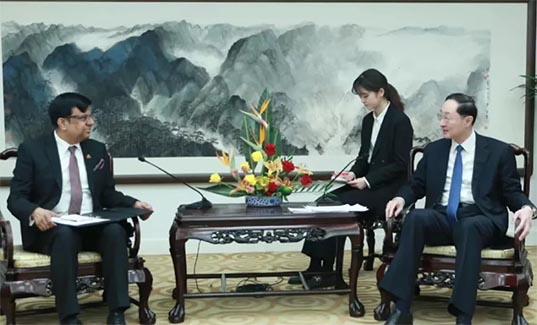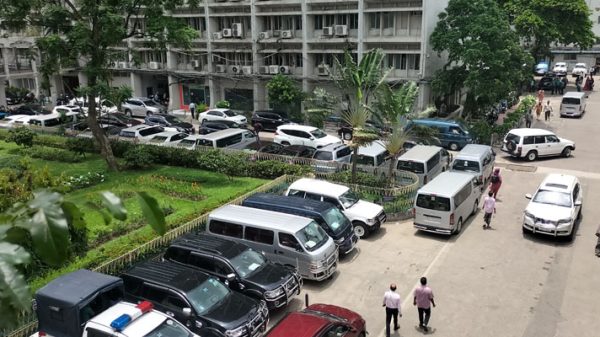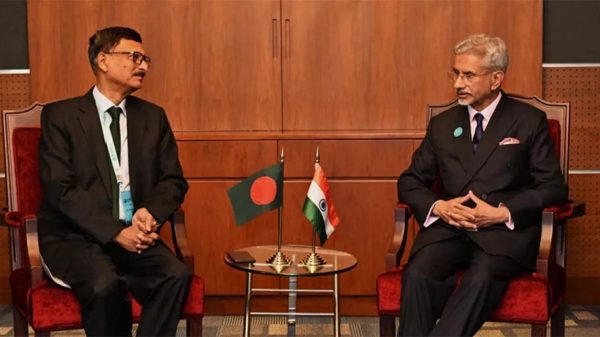PM for comprehensive reform in global pandemic preparedness, response

- Update Time : Tuesday, 7 May, 2024, 05:39 pm
- 71 Time View
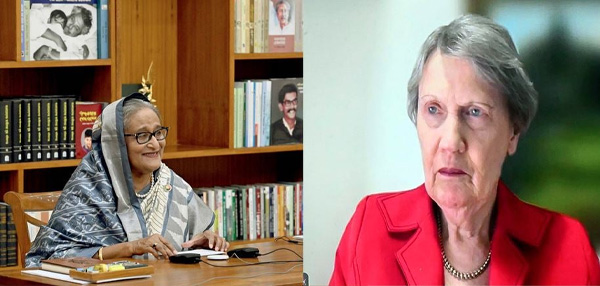
Online Desk: Prime Minister Sheikh Hasina today underscored the critical need for comprehensive reform in international pandemic preparedness and response.
“Covid-19 has been a global wake-up call… This pandemic has shown us that we are all connected. None of us can be truly safe until we make sure everyone is safe,” she said.
The premier said this at a virtual meeting with Helen Clark, former Prime Minister of New Zealand and Co-chair of the Independent Panel for Pandemic Preparedness and Response from her official residence Ganabhaban here.
“Now is the time to work together globally to achieve the public health goals outlined in Sustainable Development Goal-3 and Goal-17,” the she said, adding, “This involves helping countries with fewer resources improve their ability to handle health risks.”
Sheikh Hasina stressed the necessity of high-level political leadership in driving reforms for pandemic preparedness and response.
“High-level political leadership is indispensable in driving reforms related to pandemic preparedness and response. It sets the tone for global cooperation, instills confidence in public health interventions, and ultimately saves lives,” she said.
The Prime Minister said: “As we navigate the complexities of future pandemics, strong and decisive leadership will be essential in shaping a more resilient and prepared world.”
“We must also mobilize collective political will and commitment to strengthen WHO’s knowledge, technical, and financial capacity for pandemic prevention and response by addressing the highly fragmented global health governance system,” she added.
The Prime Minister assured that Bangladesh would continue to play a constructive role in this regard, considering its past success in protecting public health and dealing with the impact of the Covid-19 pandemic.
She also opined that political leadership’s engagement and commitment are essential in driving systemic changes that can enhance “our ability to prevent, detect, and respond to future pandemics effectively”.
Sheikh Hasina said high-level political leadership ensures that pandemic preparedness and response remain a priority on the national and international agenda.
“It facilitates the mobilization of financial resources, promotes collaboration between countries, and fosters innovation in public health systems towards achieving our shared commitment to Universal Health Coverage by 2030,” she added.
The Bangladesh premier also extended her thankfulness to the Independent Panel co-chaired by President Ellen Johnson Sir leaf and yourself (Helen Clark) for making a compelling case about it.
She noted that the lessons from Covid-19 emphasize the need for a coordinated approach to pandemic preparedness and response, grounded in scientific evidence, global cooperation, and fairness and equity.
“A meaningful application of these lessons will be essential for mitigating the impact of future pandemics and safeguarding global health security,” she said.
From the Bangladesh’s perspective, the Prime Minister stressed five recommendations:
She, firstly, said that international cooperation and collaboration are essential for sharing information, expertise, and resources to effectively respond to global health crises that respect no borders.
The race for vaccines revealed stark inequalities in access between developed and developing countries, she said in her second point, adding, “Addressing these disparities requires concerted efforts to ensure equitable distribution and access to vaccines, diagnostics, and treatments.”
Sheikh Hasina, thirdly, said Covid-19 highlighted the inter-connectedness of human, animal, and environmental health. “Adopting a One Health approach, which considers the health of humans, animals, and ecosystems as interconnected, can help prevent future pandemics,” she added.
The rapid development of Covid-19 vaccines demonstrated the importance of investing in research and development for pandemic preparedness, she said in her fourth point, adding, “Continued investment in R&D for vaccines, therapeutics, and diagnostics is essential for combating emerging and fatal infectious diseases.”
The Prime Minister finally pointed out that adequate and sustainable financing mechanisms are needed to support preparedness efforts, including early warning systems, stockpiling of medical supplies, and capacity building in at-risk regions.
Sheikh Hasina said that over the last 15 years, Bangladesh has continuously strengthened its preparedness and response capacity, incorporating the results of health security assessments and lessons from past emergencies.
She observed the Covid-19 pandemic in Bangladesh, as in other countries, was a test of resolve for preparedness, response, and resilience.
She said Covid-19 showed that prior investment in health security in Bangladesh was very useful as the country was able to quickly leverage existing preparedness and response plans, surveillance platforms, laboratories, and workforce for emergency response.
The premier said that Bangladesh’s health systems could rapidly expand the laboratory network for prompt diagnosis and provide accessible clinical care.
Drawing on those lessons, she said, they are now maximizing their efforts to prevent, detect, and better respond to future outbreaks and emergencies, including silent epidemics such as anti-microbial resistance.
The Prime Minister said that her government decided to procure and administer Covid-19 vaccines certified by the WHO as soon as possible.
Despite some initial setbacks, they eventually managed to provide Covid-19 vaccination to more than 100 percent of their target population group entirely free of charge, she added.
Sheikh Hasina mentioned that a total of over 366.87 million doses were administered in four phases by her government.
“I kept urging the international community to consider vaccines as global public goods and to make them available to low- and middle-income countries as a matter of priority,” she said
In Bangladesh, the premier said that they are also in a position to contribute to vaccine research and production in a cost-effective manner.
Among other policy support measures, she mentioned that she has already allocated a piece of land for setting up a state-of-the-art Vaccine Research Institute.
“Our government extended support for our expatriates in different parts of the world by providing them food and cash assistance,” she said, adding, “We made special arrangements for repatriating our nationals stranded in other countries, especially in India and China.”
Sheikh Hasina said that they also offered humanitarian support to a number of other countries in a spirit of solidarity, including by sending nurses to the Maldives to administer vaccines.
“We also vaccinated 1.2 million Rohingyas sheltered in camps in Cox’s Bazar,” she added.
In parallel, she said that her government had to run an extensive awareness campaign to counter the indiscriminate spread of misinformation and disinformation, particularly through social media.
The premier said the Covid-19 pandemic hit Bangladesh like many other countries, in early 2020.
“But due to the continuation of our long-standing activities in the health sector and the timely action of the government, we have been able to reduce the loss of human lives and keep the economy running,” she said.
“We had to strike a judicious balance between saving lives and protecting livelihoods,” she added.
In parallel, the prime minister said that her government rolled out a substantive stimulus package for industries and a comprehensive social protection portfolio for the low-income and marginalized people.
The government provided US$ 27.96 billion as stimulus packages for industries and businessmen, the marginalized section of society, like day-labourers, rickshaw pullers, small traders, vendors, school and madrasha teachers.
About 78.5 million people benefited from the support during the Covid-19 pandemic.
“Besides, our party Awami League leaders and workers, affluent people, and businessmen extended support by providing food, medicine, etc,” she said.
She added, “Due to our efforts, Bangladesh ranked among the top five countries in the world in overall Covid-19 management and recovery.”

